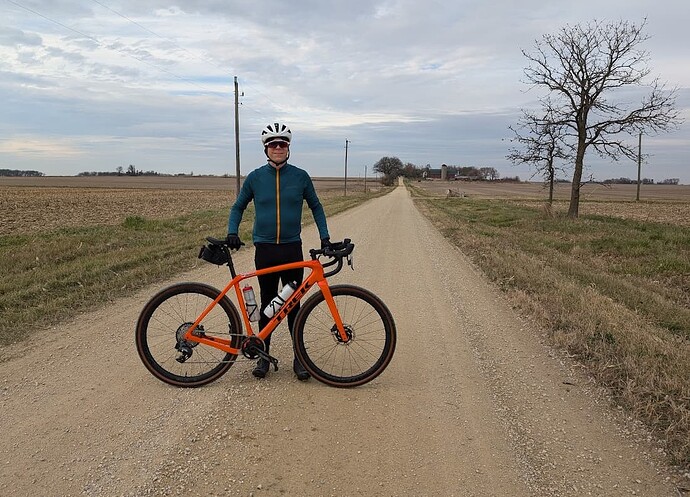Warning: long post incoming
@soulo_ridah I’m sensing you have some disbelief in my numbers, which is fine, I definitely can understand your frustration from slow progress. I’ve given some broader details on my journey, but I’ll try to give a little more specifics related to your questions. I’m 100% transparent in my lifestyle and approaches to training, so if you have any others feel free to ask.
So 1st off I think I need to provide a bit more background on my history and consistency. In the past 12ish years, I have not taken more than 3 days off from exercise or training of some sort. When my family goes on vacation, I run or do bodyweight cardio. When I’m sick, I’ll take a day off or maybe 2 if it is bad, but I’ll be right back at it even if I’m still not 100%. If I’m injured, I do anything I can do to stay active. After I ran my last marathon in 3:30, I took one day off and then was back on the elliptical doing 90 min of easy cardio. Keep in mind, fitness and health is my passion. It is what I love to do. I’m thinking about this all the time. How can I get better? What can I do to improve more? What things can I change in my life to optimize my training? Constantly reading and listening to training books/podcasts/articles and anything else related.
So based on your post, it is really impossible for me to analyze what you are doing “wrong” without more information. You provide that you followed a TD plan to the T, but that’s really it. What plan was it? What is your lifestyle outside of training? Do you eat right? Do you sleep well? The list goes on. So with that being said, I’ll just tell you how I do it and try to point out what some possible differences would be.
Here is where I’m going to throw a bit of a wrench at you. I don’t follow TD to a T. I believe it works well for most people. @Alex can definitely chime in here, but I think he is well aware of the fact that I may be an outlier. They have developed the app so that when it generates a plan for somebody, they aren’t going to crash and burn and dropout because it is too hard. Imagine trying to give out generic training for people with all sorts of training experience, fitness levels, etc. You would probably err on the side of making stuff a bit more accessible and achievable rather than flogging them into misery except for maybe a small amount of higher achievers. Probably wouldn’t have very good retention with that sort of thing. (I’m a data engineer so have some experience in software development principles)
So in my opinion, TD is a great starting point and hits on the most important cornerstone in any training: CONSISTENCY
If you can maintain the consistency set up by your TD plan, nice work. If you then follow it to the T, then you need to assess your progress and analyze how the plan went. Did it work with your lifestyle? Did you feel you had key workout days each week that pushed improvement? Was it too hard? Was it too easy?
I found out very quickly, that for me, I can push the envelope much further than what a TD plan lays out. On key workout days, I replace the TD prescribed workout with my own. These are MUCH harder, as you can see from a prior post of mine referring to a threshold workout where I do 2x30 min at almost 370w followed by another 45 min of Z2. I know it is human nature to look at results and outcomes and think you understand the path it took to get there, but I can probably assure you that the amount of pain and sacrifice I put myself through is quite rare. On hard days, I’m always on the razor’s edge as far as the workout being so difficult it is almost unachievable. I do this twice a week usually. Now as I’ve said before, I don’t believe you should go ahead and try to replicate this. As Alex has said before, this leads most people to burnout and quit. You need to have an absolute understanding of how your body is feeling and an incredible sense of how long it takes to recover and when you can go hard again.
So obviously my opinion is that you need to have very hard days if you want to increase your performance to the limits. To achieve this though there are so many other factors.
- Eating tons of good quality food
- Getting good quality sleep
- Prioritizing training - yes that means going to bed early on Fridays or Saturdays because you have a big training day on the weekend. Sacrificing social outings.
Now keep in mind I also have two daughters (1 and 4) and a wife, both of us working full time jobs. I’ve said it before but I wake up at 4:30 to get my training in. I basically give up all free time in my waking hours to training, working, or family time. One thing I’m absolutely non-negotiable on is that if my training takes away from any sort of experiences or activities my daughters are involved in, I change something. This is why I do it early in the morning while they are sleeping. Yes, even on weekends.
So I hope this gives you an idea of how I’ve gotten to where I am. It is a total dedication to training outside of family and work. And if you think this is hard to believe or crazy. Well I’ll just tell you my family thinks I’m crazy, my friends think I’m crazy, people I race think I’m crazy… I must be crazy.
